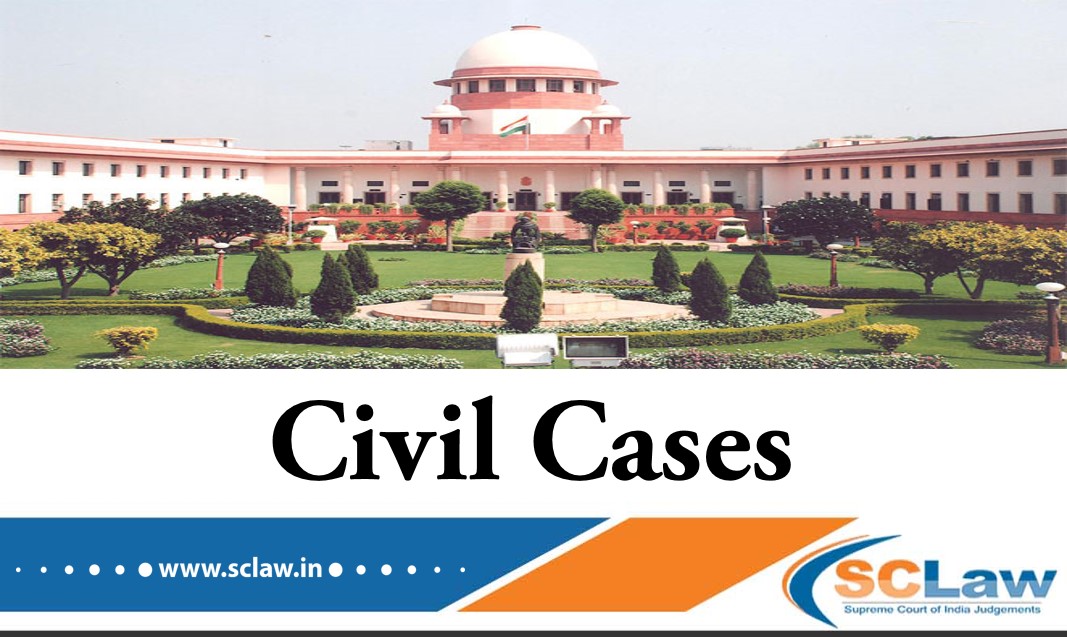Industry–Law Department is not an industry within the meaning of Section 2(s) of the I.D. Act. Precedent–Reliance on the decision without looking into the factual background of the case before it, is clearly impermissible. Precedent–The enunciation of the reason or principle on which a question before a Court has been decided is alone binding as a precedent. Precedent–Judgments of Courts–Judges interpret statutes, they do not interpret judgments–They interpret words of statutes, their words are not to be interpreted as statutes.
2008(1) LAW HERALD (SC) 275 IN THE SUPREME COURT OF INDIA Before The Hon’ble Mr. Justice Arijit Pasayat The Hon’ble Mr. Justice P. Sathasivam Civil Appeal No. 3021 of 2006…
Limitation–Court would not exercise its jurisdiction for any relief if suit is found to be barred by limitation.
2008(1) LAW HERALD (SC) 272 IN THE SUPREME COURT OF INDIA Before The Hon’ble Mr. Justice S.B. Sinha The Hon’ble Mr. Justice G.S. Singhvi Appeal (civil) 5771 of 2007…
Promotion–Where the junior had completed the eligibility requirement of promotion, then their seniors will also be considered even if they have not completed the eligibility period.
2008(1) LAW HERALD (SC) 270 IN THE SUPREME COURT OF INDIA Before The Hon’ble Mr. Justice A.K. Mathur The Hon’ble Mr. Justice Markandey Katju Civil Appeal No. 8208 of 2001…
O.21 R.1- Execution of Decree-Limitation–Execution of preliminary decree for Partition-Till partition is carried out and final decree is passed, there is no question of any limitation
(2017) AIR(SCW) 2447 : (2017) 3 AIRJharR 336 : (2017) AIR(SC) 2447 : (2017) AllSCR 1073 : (2017) 4 AndhLD 160 : (2017) DNJ 425 : (2017) 3 ICC 241…
Appointment of Law Officers — Whether appointment of law officers by the State Governments can be questioned or the process by which such appointments are made — Court are primarily concerned with the procedure regarding selection and appointment of law officers in the States of Punjab and Haryana
(2016) 6 ADJ 14 : (2016) AIR(SCW) 1629 : (2016) AIR(SC) 1629 : (2016) AllSCR 1795 : (2016) 3 AllWC 2846 : (2016) 1 BBCJ 567 : (2016) 3 GujLH…
IMP : Divorce—Video Conferencing—Keeping in the very object behind the establishment of Family Courts directions issued in Krishna Veni Nagam case need reconsideration on the aspect of video conferencing in matrimonial disputes—Matter referred to larger bench.
2017(3) Law Herald (SC) 2090 : 2017 LawHerald.Org 1339 IN THE SUPREME COURT OF INDIA Before Hon’ble Mr. Justice Kurian Joseph Hon’ble Mrs. Justice R. Banumathi Transfer Petition (Civil) No.…
Service Law–Dismissal—Financial irregularities—No Defense available to a delinquent to say there was ‘No Loss Or Profit’ resulting in a case when he is found to have acted without authority.
2017(3) Law Herald (SC) 2085 : 2017 LawHerald.Org 1395 IN THE SUPREME COURT OF INDIA Before Hon’ble Mr. Justice R.K. Agrawal Hon’ble Mr. Justice Abhay Manohar Sapre Civil Appeal No.…
Insolvency and Bankruptcy—Recovery of Dues—Procedure and Concepts under 2016 Code discussed and explained.
2017(3) Law Herald (SC) 2041 : 2017 LawHerald.Org 1393 IN THE SUPREME COURT OF INDIA Before Hon’ble Mr. Justice R.F. Nariman Hon’ble Mr. Justice Sanjay Kishan Kaul Civil Appeal Nos.…
Right to Information—Performance of employee and his service records/ details are governed by service rules which fall under the expression “personal information”, which is exempted from being disclosed,
2017(3) Law Herald (SC) 2038 : 2017 LawHerald.Org 1341 IN THE SUPREME COURT OF INDIA Before Hon’ble Mr. Justice R.K. Agrawal Hon’ble Mr. Justice Abhay Manohar Sapre C/V/7 Appeal No.…
Custody of Child—Preference of Child of discernible age is to be given due importance.
2017(3) Law Herald (SC) 2032 : 2017 LawHerald.Org 1342 IN THE SUPREME COURT OF INDIA Before Hon’ble Mr. Justice A.K. Sikri Hon’ble Mr. Justice Ashok Bhushan Criminal Appeal No. 1553…












